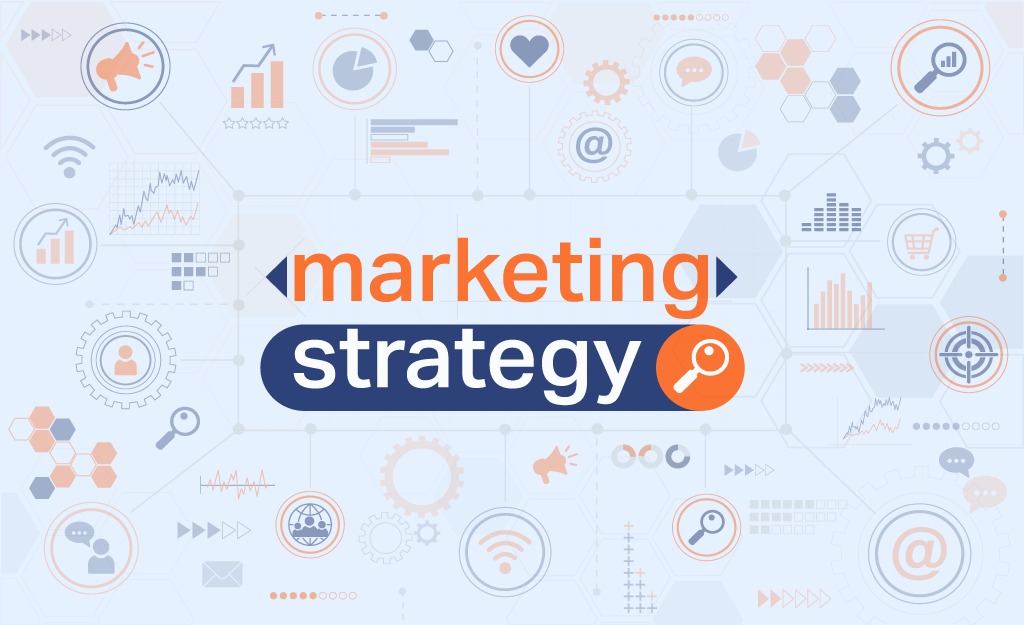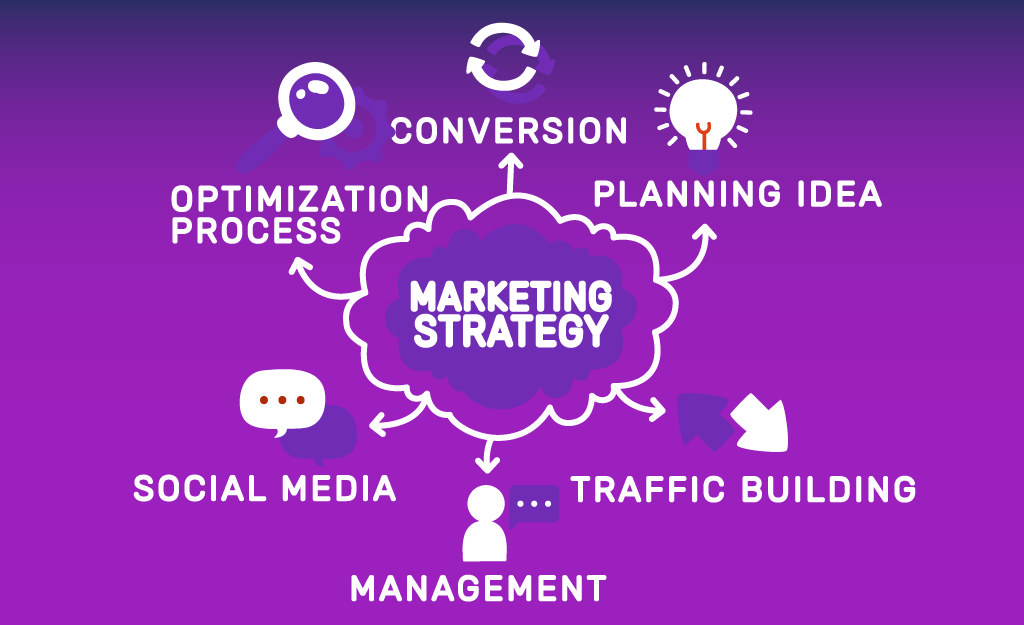
In today’s highly competitive business landscape, a well-executed marketing strategy is essential for any organization aiming to achieve success. Whether you’re a small startup or an established company, having a winning marketing strategy can help you stand out from the crowd, attract new customers, and drive business growth. In this blog, we will explore the key steps involved in creating a winning marketing strategy that can propel your business forward.
What is Marketing Strategy?
Marketing strategy refers to a comprehensive plan of action designed to promote and achieve a company’s marketing goals and objectives. It encompasses the strategic decisions and tactics employed to reach target audiences, create brand awareness, generate leads, and drive customer engagement and loyalty. A well-defined marketing strategy takes into account factors such as the target market, competition, positioning, pricing, distribution channels, and promotional activities. It involves analyzing customer needs and behaviors, identifying unique selling propositions, selecting appropriate marketing channels, and developing compelling messaging and creative content. A successful marketing strategy aligns with the overall business objectives and provides a roadmap for effective and impactful marketing campaigns, helping businesses gain a competitive edge and achieve long-term success in the marketplace.
Why Marketing Strategy is Important
Marketing strategy is essential for the success of any business because it provides a roadmap to achieve specific goals and objectives. Here are several reasons why marketing strategy is important:
- Focus and Direction: A well-crafted marketing strategy helps businesses stay focused on their target market and objectives. It provides a clear direction for all marketing efforts, ensuring that resources and efforts are aligned towards achieving specific outcomes.
- Differentiation and Competitive Advantage: A strong marketing strategy helps businesses differentiate themselves from competitors. By identifying unique selling propositions and communicating them effectively, businesses can establish a competitive advantage and stand out in the market.
- Targeted Reach: Marketing strategies enable businesses to identify and target specific customer segments. By understanding the needs, preferences, and behaviors of the target audience, businesses can tailor their marketing messages and tactics to resonate with them effectively, increasing the chances of attracting and retaining customers.
- Resource Allocation: With a marketing strategy in place, businesses can allocate their resources effectively. This includes budget allocation, personnel, and technology. By investing resources strategically, businesses can optimize their marketing efforts and maximize return on investment.
- Adaptability and Agility: Marketing strategies allow businesses to be agile and adapt to changing market conditions. By monitoring and analyzing market trends and consumer behavior, businesses can make informed decisions and adjust their strategies accordingly to stay ahead of the curve.
- Measurement and Evaluation: Marketing strategies provide a framework for measuring and evaluating the success of marketing initiatives. Key performance indicators (KPIs) are established to track progress and determine the effectiveness of marketing efforts. This data-driven approach enables businesses to make informed decisions, optimize campaigns, and allocate resources where they will have the greatest impact.
- Long-term Growth: A well-executed marketing strategy sets the foundation for long-term growth and sustainability. It helps businesses build brand awareness, foster customer loyalty, and generate consistent leads and sales. By establishing a strong market presence, businesses can expand their reach, penetrate new markets, and drive business growth.
12 Steps to Create a Winning Marketing Strategy
A well-defined marketing strategy is crucial for businesses as it provides focus, differentiation, targeted reach, resource optimization, adaptability, measurement, and long-term growth. It serves as a guiding framework for all marketing efforts, ensuring that businesses effectively engage their target audience, create value, and achieve their marketing objectives.

1. Define Your Goals and Target Audience
The first step in developing a winning marketing strategy is to clearly define your goals. What do you want to achieve through your marketing efforts? Are you aiming to increase brand awareness, generate leads, boost sales, or expand into new markets? Once you have a clear understanding of your goals, it’s crucial to identify and define your target audience. Who are your ideal customers? What are their demographics, interests, and pain points? Having a deep understanding of your target audience will help you tailor your marketing messages and tactics to resonate with them effectively.
2. Conduct Market Research
To create an effective marketing strategy, you need to have a solid understanding of your industry, competitors, and market trends. Conducting thorough market research will provide you with valuable insights that can shape your strategy. Analyze your competitors’ strategies, identify their strengths and weaknesses, and determine what sets your brand apart. Additionally, stay up to date with industry trends and customer preferences to ensure that your marketing efforts remain relevant and timely.
3. Develop a Unique Value Proposition
A unique value proposition (UVP) is a statement that defines the unique benefits your product or service offers to customers. It is crucial to develop a UVP that sets your brand apart from the competition and resonates with your target audience. Your UVP should answer the question, “Why should customers choose your brand over others?” Focus on the unique features, benefits, or solutions you provide and communicate them effectively through your marketing materials.
4. Choose the Right Marketing Channels
With numerous marketing channels available, it’s important to select the ones that align with your goals and target audience. Consider using a mix of online and offline channels, such as social media, email marketing, content marketing, search engine optimization (SEO), and traditional advertising methods. Each channel has its strengths and weaknesses, so tailor your approach based on your audience’s preferences and behaviors. There are hundreds of marketing tools that can make your strategy more efficient. Try to utilize them properly.
5. Develop a Content Strategy
Content marketing plays a significant role in any winning marketing strategy. Develop a comprehensive content strategy that aligns with your target audience’s needs and preferences. Create high-quality & SEO optimized content that educates, entertains, or solves problems for your audience. Incorporate different types of content, such as blog posts, videos, infographics, and podcasts, to engage your audience across various platforms.
6. Set a Budget and Allocate Resources
A well-defined budget is crucial to ensure that your marketing strategy is implemented effectively. Determine how much you can allocate to marketing activities and establish a realistic budget for each channel and campaign. It’s also important to allocate the necessary resources, including skilled personnel, technology, and tools, to execute your marketing initiatives successfully.
7. Implement, Monitor, and Optimize
Once your marketing strategy is developed and resources are allocated, it’s time to implement your plan. Launch your campaigns across the selected channels and closely monitor their performance. Use analytics tools to measure key performance indicators (KPIs), such as website traffic, conversions, click-through rates, and social media engagement. Continuously analyze the data, identify areas of improvement, and make necessary adjustments to optimize your marketing efforts.
8. Build Brand Awareness and Differentiate
Creating brand awareness is crucial for a winning marketing strategy. Utilize your chosen marketing channels to build your brand’s presence and reach your target audience. Develop consistent messaging and visuals that reflect your brand’s values and unique selling points. Stand out from competitors by highlighting what sets you apart and emphasizing the benefits of choosing your brand. Leverage storytelling and compelling content to engage your audience emotionally and create a lasting impression.
9. Utilize Digital Marketing Tactics
Digital marketing offers a vast array of tools and tactics to enhance your strategy. Optimize your website for search engines through effective SEO techniques to improve your organic visibility. Leverage paid advertising campaigns such as search engine marketing (SEM) or pay-per-click (PPC) advertising to boost your online visibility and drive targeted traffic. Explore the power of social media marketing to engage with your audience, build relationships, and generate leads. Additionally, leverage email marketing to nurture your leads and stay connected with your customers.
10. Embrace Data-driven Decision Making
Data is the backbone of a successful marketing strategy. Utilize data analytics tools to measure the performance of your campaigns, track customer behavior, and gain insights into their preferences. Use these insights to refine your targeting, messaging, and campaign strategies. Continuously test and experiment with different approaches to optimize your results. Monitor key metrics regularly and adjust your tactics based on data-driven insights to maximize your marketing ROI.
11. Foster Customer Engagement and Loyalty
Winning marketing strategies go beyond acquiring new customers; they focus on building long-term relationships with existing customers. Develop initiatives to engage and delight your customers, such as loyalty programs, personalized experiences, and exceptional customer service. Encourage customer feedback and reviews to enhance your brand’s reputation and credibility. Leverage social media platforms and online communities to foster a sense of belonging and encourage customer advocacy.
12. Adapt and Evolve
The business landscape is constantly evolving, and so should your marketing strategy. Stay informed about emerging trends, technologies, and changes in consumer behavior. Be flexible and willing to adapt your strategy to stay ahead of the curve. Regularly evaluate the effectiveness of your marketing efforts and make necessary adjustments to keep your strategy fresh, relevant, and aligned with your goals.
Marketing Stratefy Examples from World-class Companies
Airbnb: The vacation rental platform has a highly successful content marketing strategy, creating engaging and inspiring travel guides that showcase unique and interesting places to stay around the world. By providing valuable content that goes beyond just promoting their platform, Airbnb has established itself as a go-to resource for travel inspiration.
Nike: Nike’s “Just Do It” campaign is one of the most successful advertising campaigns of all time, inspiring and empowering athletes worldwide. By focusing on the emotions and motivations behind why people exercise, rather than just promoting their products, Nike has built a loyal following of customers who connect with their brand on a deeper level.
Coca-Cola: Coca-Cola is renowned for its iconic brand messaging and creative advertising campaigns. Their “Share a Coke” campaign encouraged customers to buy personalized bottles of Coke for friends and family, leading to a significant increase in sales and social media engagement.
Dollar Shave Club: The men’s grooming subscription service revolutionized the industry with its humorous and irreverent advertising campaigns. By leveraging humor to connect with their target audience and simplify the often-complicated world of grooming products, Dollar Shave Club quickly gained a large and loyal customer base.
Apple: Apple’s marketing strategy is centered around building an emotional connection with customers, using sleek and minimalist design, high-quality product features, and clever advertising campaigns to appeal to the desires and aspirations of its target audience.
Red Bull: The energy drink company has created a highly successful content marketing strategy centered around extreme sports and adventure. By sponsoring events and creating visually stunning and inspiring content, Red Bull has established itself as a lifestyle brand that appeals to young and adventurous consumers.
GoPro: The action camera company has built a strong brand identity through its user-generated content marketing strategy. By encouraging users to share their GoPro videos and photos on social media, the company has created a community of passionate and engaged fans who promote the brand and its products through their own content.
Conclusion
Creating an effective marketing strategy requires a thorough understanding of your goals, target audience, and market dynamics. By defining your unique value proposition, selecting the right marketing channels, developing engaging content, and leveraging data-driven insights, you can position your brand for success. It’s essential to continuously monitor and optimize your efforts, foster customer engagement and loyalty, and stay adaptable to ever-changing market conditions. With a well-crafted marketing strategy, you can achieve your business objectives, drive growth, and establish your brand as a leader in your industry.